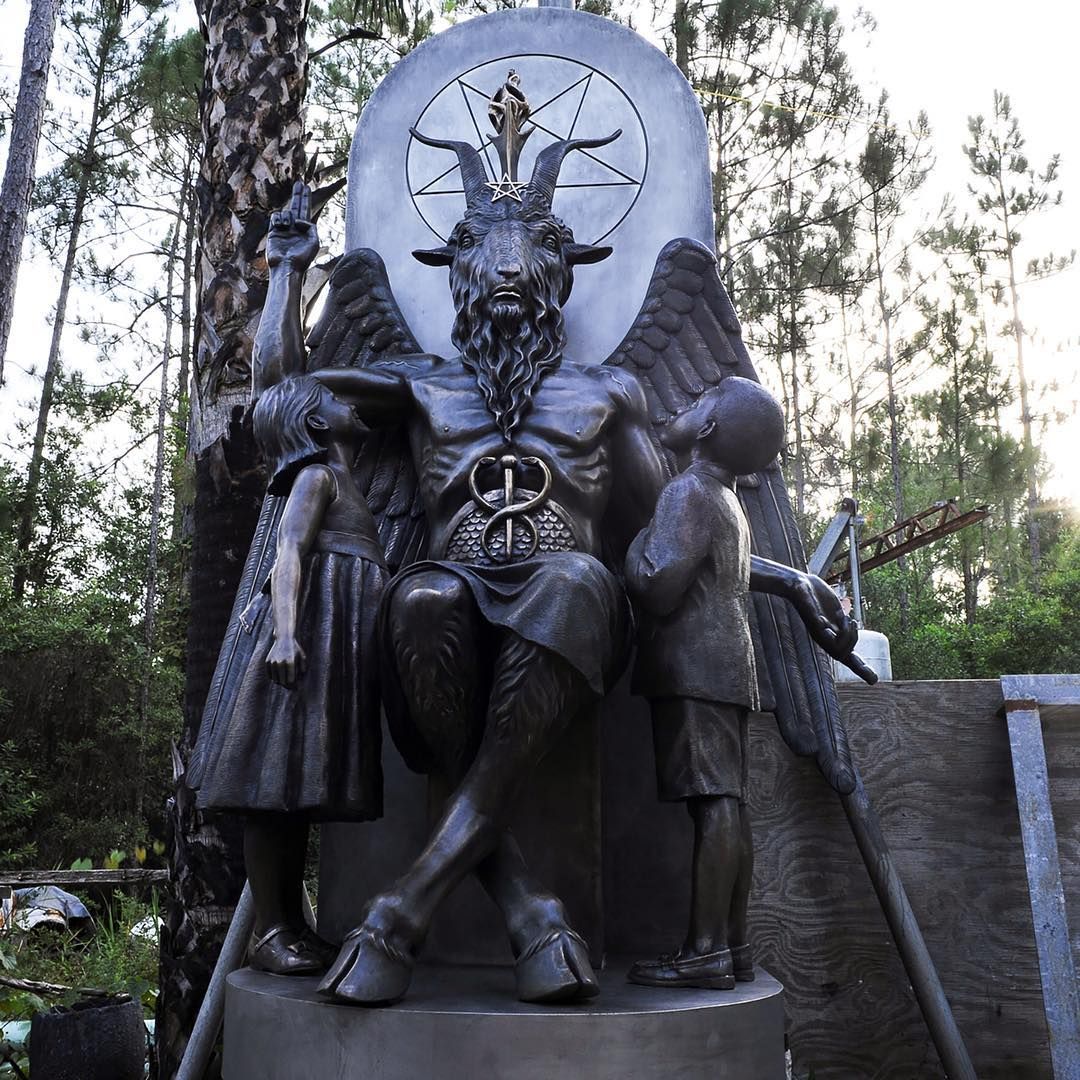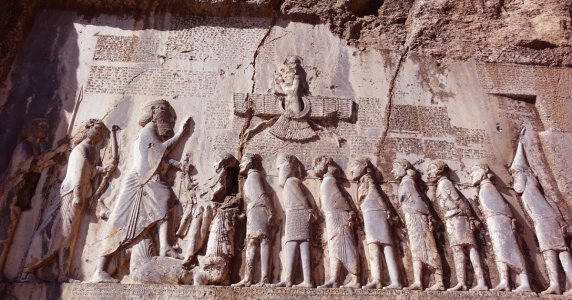- Mar 5, 2024
- 2,135
- 1,103
Our Faith In His Return Will Be Reflected In Our Actions, Part 2

Reestablishing the context of our current passage from Part 1, the belief during New Testament times was that the second coming was imminent, and that those still alive in the earth would be taken up with Him and spared the judgment that would then come upon the world (1 Thessalonians 4:13-18, 2 Thessalonians 1:7-8). Thus, when mention was made of being "saved," they meant saved from the coming Day of the Lord, which is also what James was referring to when he asked his readers, "If a man has faith but does not have works, can faith save him?" He was referring to saved from the coming judgment, for as he added in Chapter 5:
Be long-suffering, therefore. Reassure your hearts, for the Lord's coming has drawn near. Do not grumble against one another, brothers, that you not be judged. Behold, the Judge stands at the door. (James 5:8-9)
The apostles Paul and Peter also believed Christ's return was imminent, and likewise also taught that believers needed to respond in ways that were in keeping with that belief:
The end of all things has now drawn near. Therefore be sober-minded and watchful unto prayers, above all things having fervent love for one another, for “love covers over a multitude of sins.” (1 Peter 4:7-8)
We should be considerate of one another, and aim to provoke each other to love and good works ... all the more as you see the Day approaching. (Hebrews 10:24, 25b)
This, then, was the context of his teaching on how faith without works was dead, and would not save a man at the Lord's return:
My brothers, what help is it if anyone claims to have faith yet does not have works? Is faith able to save him?... You believe that God is one? You do well. Even the demons believe and tremble. But will you know, O vain man, that faith apart from works is dead? Was not our father Abraham justified by works, having offered Isaac his son on the altar? You see that faith was working together with his works, and by works was his faith validated. And the scripture was fulfilled which said, "And Abraham believed God, and it was accredited unto him for righteousness," and he was called a friend of God. (James 2:14, 19-24)
But how then were their works "validating their faith," and in what way was their faith being accredited unto them as righteousness? Exceedingly great promises were given by God to Abraham, but his attaining unto them did not come without sacrifice. Eventually God asked him to offer up Isaac his son, which was in effect to ask Abraham, "Will you still trust Me if I require you to make a great sacrifices to attain the promises?" The Lord eventually provided a ram so Abraham would not have to actually go through with it, but the fact that Abraham would have if required to placed him on an entirely different level with God. The Father knew He would one day have to give His own Son on a cross, so the fact that Abraham was also willing to do the same gave him a special place in God's heart. Abraham demonstrated great trust in God's promises through his actions, and the result was that he became "the friend of God."
As we shall see, the same parallels existed for the New Testament church, and they will become increasingly relevant to the end-time church as well, as it begins to become increasingly obvious that the true return of the Lord Jesus Christ is finally drawing near.
Why Faith Is Accredited As Righteousness
Why did God accredit Abraham's faith unto him as righteousness, and why does He accredit our faith as righteousness today? The answer is simple. He knows that if we believe His promises, we will listen to Him and do what He asks us to do to attain to them, even if it means making some sacrifices along the way in order to get there, because at the end of the day we are convinced we will receive the things He has promised.
The New Testament writers quoted the passage about Abraham believing God numerous times, not only here but in four other places as well: Romans 4:1-22, Galatians 3:6-9, Hebrews 11:8-10, and Hebrews 11:17-19, and the original passage from the Old Testament reads as follows:
1 After these things the word of the Lord came to Abram in a vision, saying, “Do not be afraid, Abram. I am your shield, your exceedingly great reward.” 2 But Abram said, “Lord God, what will You give me, seeing I go childless, and the heir of my house is Eliezer of Damascus?... 4 And behold, the word of the Lord came to him, saying, “This one shall not be your heir, but one who will come from your own body shall be your heir.” 5 Then He brought him outside and said, “Look now toward heaven, and count the stars if you are able to number them.” And He said to him, “So shall your descendants be.” 6 And Abram believed the Lord, and He accredited it unto him for righteousness. (Genesis 15:1-6)
But notice where it all started. The Lord first promised to be Abraham's "exceedingly great reward," and make his offspring as numerous as the stars of heaven. His promises become our motivation in being willing to trust Him and serve Him.
So how did all this relate to early believers, and how does it all relate to us then? It mirrors what God did with the New Testament church, for He likewise told them they would be inheriting the kingdoms of this world after His second coming:
27 Then Peter answered and said to Him, “See, we have left all and followed You. Therefore what shall we have?” 28 So Jesus said to them, “Assuredly I say to you, that in the regeneration, when the Son of Man sits on the throne of His glory, you who have followed Me will also sit on twelve thrones, judging the twelve tribes of Israel. (Matthew 19:27-28)
This was not a new promise but the repeating of an old one, for in speaking of how the Battle of Armageddon would end, the prophet Daniel prophesied long beforehand that the meek would inherit the kingdoms of this world; not just the twelve but the people of God as a whole, meaning they would reign over regions of the earth and enjoy having dominion over it some day. Speaking of what would take place after the Antichrist was deposed:
25 [The little horn] shall speak pompous words against the Most High, and shall persecute the saints of the Most High... 26 But the court shall sit, and they shall take away his dominion, to consume and destroy it forever. 27 And then the kingdom and the dominion and the greatness of the kingdoms under the whole heaven shall be given over to the people, the saints of the Most High. His kingdom will be an everlasting kingdom, and all dominions shall serve and obey Him. (Daniel 7:25-27)
Thus, the pattern the Lord used was the same. He first made an exceedingly great promise to His children and then asked them to believe in it, knowing it would take faith and corresponding actions to see it fulfilled. In the case of the early church, He knew they would have to endure all sorts of hardships and persecution, so they too would have to make sacrifices in order to see it through to the end.
There is an analogy to this that fits almost perfectly from the sports world. Successful coaches make a great deal of money because hiring them makes the hope of winning a championship suddenly a very real possibility. They know how to get a team to the place where they can win one. Yet the players know it will not happen by accident. It will take listening on their part, working hard, and then implementing what he teaches. And what will such a coach be looking for in players? If he is hired to take over a weak program where few if any of the players know what it will take, he will not be looking simply for who are currently the best players on the team. Rather, he will be looking for those who will listen and put in the most effort to improve, bringing in others who have the same mentality. The reason is because he knows they ALL have a long ways to go yet, so he will be going more on potential than current talent. This, then, is why he will accredit better play to the ones listening, working hard, and obeying his instructions, because they will be the ones most likely to eventually get where he truly needs them to get to in order to attain to the promise of winning a championship.
So it is with how God accredits righteousness unto those who have faith in His promises. He looks for those who will trust Him and completely buy in, because He knows they will eventually attain to the spiritual greatness he wants for them if they keep listening to Him, trusting Him, believing in Him, working hard, sacrificing when necessary, and doing whatever it takes to attain glory. This is why when it comes to our relationship with the Lord Jesus Christ, our faith in His promises will be accredited unto us as righteousness. Genuine faith will eventually be reflected in actions.

Reestablishing the context of our current passage from Part 1, the belief during New Testament times was that the second coming was imminent, and that those still alive in the earth would be taken up with Him and spared the judgment that would then come upon the world (1 Thessalonians 4:13-18, 2 Thessalonians 1:7-8). Thus, when mention was made of being "saved," they meant saved from the coming Day of the Lord, which is also what James was referring to when he asked his readers, "If a man has faith but does not have works, can faith save him?" He was referring to saved from the coming judgment, for as he added in Chapter 5:
Be long-suffering, therefore. Reassure your hearts, for the Lord's coming has drawn near. Do not grumble against one another, brothers, that you not be judged. Behold, the Judge stands at the door. (James 5:8-9)
The apostles Paul and Peter also believed Christ's return was imminent, and likewise also taught that believers needed to respond in ways that were in keeping with that belief:
The end of all things has now drawn near. Therefore be sober-minded and watchful unto prayers, above all things having fervent love for one another, for “love covers over a multitude of sins.” (1 Peter 4:7-8)
We should be considerate of one another, and aim to provoke each other to love and good works ... all the more as you see the Day approaching. (Hebrews 10:24, 25b)
This, then, was the context of his teaching on how faith without works was dead, and would not save a man at the Lord's return:
My brothers, what help is it if anyone claims to have faith yet does not have works? Is faith able to save him?... You believe that God is one? You do well. Even the demons believe and tremble. But will you know, O vain man, that faith apart from works is dead? Was not our father Abraham justified by works, having offered Isaac his son on the altar? You see that faith was working together with his works, and by works was his faith validated. And the scripture was fulfilled which said, "And Abraham believed God, and it was accredited unto him for righteousness," and he was called a friend of God. (James 2:14, 19-24)
But how then were their works "validating their faith," and in what way was their faith being accredited unto them as righteousness? Exceedingly great promises were given by God to Abraham, but his attaining unto them did not come without sacrifice. Eventually God asked him to offer up Isaac his son, which was in effect to ask Abraham, "Will you still trust Me if I require you to make a great sacrifices to attain the promises?" The Lord eventually provided a ram so Abraham would not have to actually go through with it, but the fact that Abraham would have if required to placed him on an entirely different level with God. The Father knew He would one day have to give His own Son on a cross, so the fact that Abraham was also willing to do the same gave him a special place in God's heart. Abraham demonstrated great trust in God's promises through his actions, and the result was that he became "the friend of God."
As we shall see, the same parallels existed for the New Testament church, and they will become increasingly relevant to the end-time church as well, as it begins to become increasingly obvious that the true return of the Lord Jesus Christ is finally drawing near.
Why Faith Is Accredited As Righteousness
Why did God accredit Abraham's faith unto him as righteousness, and why does He accredit our faith as righteousness today? The answer is simple. He knows that if we believe His promises, we will listen to Him and do what He asks us to do to attain to them, even if it means making some sacrifices along the way in order to get there, because at the end of the day we are convinced we will receive the things He has promised.
The New Testament writers quoted the passage about Abraham believing God numerous times, not only here but in four other places as well: Romans 4:1-22, Galatians 3:6-9, Hebrews 11:8-10, and Hebrews 11:17-19, and the original passage from the Old Testament reads as follows:
1 After these things the word of the Lord came to Abram in a vision, saying, “Do not be afraid, Abram. I am your shield, your exceedingly great reward.” 2 But Abram said, “Lord God, what will You give me, seeing I go childless, and the heir of my house is Eliezer of Damascus?... 4 And behold, the word of the Lord came to him, saying, “This one shall not be your heir, but one who will come from your own body shall be your heir.” 5 Then He brought him outside and said, “Look now toward heaven, and count the stars if you are able to number them.” And He said to him, “So shall your descendants be.” 6 And Abram believed the Lord, and He accredited it unto him for righteousness. (Genesis 15:1-6)
But notice where it all started. The Lord first promised to be Abraham's "exceedingly great reward," and make his offspring as numerous as the stars of heaven. His promises become our motivation in being willing to trust Him and serve Him.
So how did all this relate to early believers, and how does it all relate to us then? It mirrors what God did with the New Testament church, for He likewise told them they would be inheriting the kingdoms of this world after His second coming:
27 Then Peter answered and said to Him, “See, we have left all and followed You. Therefore what shall we have?” 28 So Jesus said to them, “Assuredly I say to you, that in the regeneration, when the Son of Man sits on the throne of His glory, you who have followed Me will also sit on twelve thrones, judging the twelve tribes of Israel. (Matthew 19:27-28)
This was not a new promise but the repeating of an old one, for in speaking of how the Battle of Armageddon would end, the prophet Daniel prophesied long beforehand that the meek would inherit the kingdoms of this world; not just the twelve but the people of God as a whole, meaning they would reign over regions of the earth and enjoy having dominion over it some day. Speaking of what would take place after the Antichrist was deposed:
25 [The little horn] shall speak pompous words against the Most High, and shall persecute the saints of the Most High... 26 But the court shall sit, and they shall take away his dominion, to consume and destroy it forever. 27 And then the kingdom and the dominion and the greatness of the kingdoms under the whole heaven shall be given over to the people, the saints of the Most High. His kingdom will be an everlasting kingdom, and all dominions shall serve and obey Him. (Daniel 7:25-27)
Thus, the pattern the Lord used was the same. He first made an exceedingly great promise to His children and then asked them to believe in it, knowing it would take faith and corresponding actions to see it fulfilled. In the case of the early church, He knew they would have to endure all sorts of hardships and persecution, so they too would have to make sacrifices in order to see it through to the end.
There is an analogy to this that fits almost perfectly from the sports world. Successful coaches make a great deal of money because hiring them makes the hope of winning a championship suddenly a very real possibility. They know how to get a team to the place where they can win one. Yet the players know it will not happen by accident. It will take listening on their part, working hard, and then implementing what he teaches. And what will such a coach be looking for in players? If he is hired to take over a weak program where few if any of the players know what it will take, he will not be looking simply for who are currently the best players on the team. Rather, he will be looking for those who will listen and put in the most effort to improve, bringing in others who have the same mentality. The reason is because he knows they ALL have a long ways to go yet, so he will be going more on potential than current talent. This, then, is why he will accredit better play to the ones listening, working hard, and obeying his instructions, because they will be the ones most likely to eventually get where he truly needs them to get to in order to attain to the promise of winning a championship.
So it is with how God accredits righteousness unto those who have faith in His promises. He looks for those who will trust Him and completely buy in, because He knows they will eventually attain to the spiritual greatness he wants for them if they keep listening to Him, trusting Him, believing in Him, working hard, sacrificing when necessary, and doing whatever it takes to attain glory. This is why when it comes to our relationship with the Lord Jesus Christ, our faith in His promises will be accredited unto us as righteousness. Genuine faith will eventually be reflected in actions.








